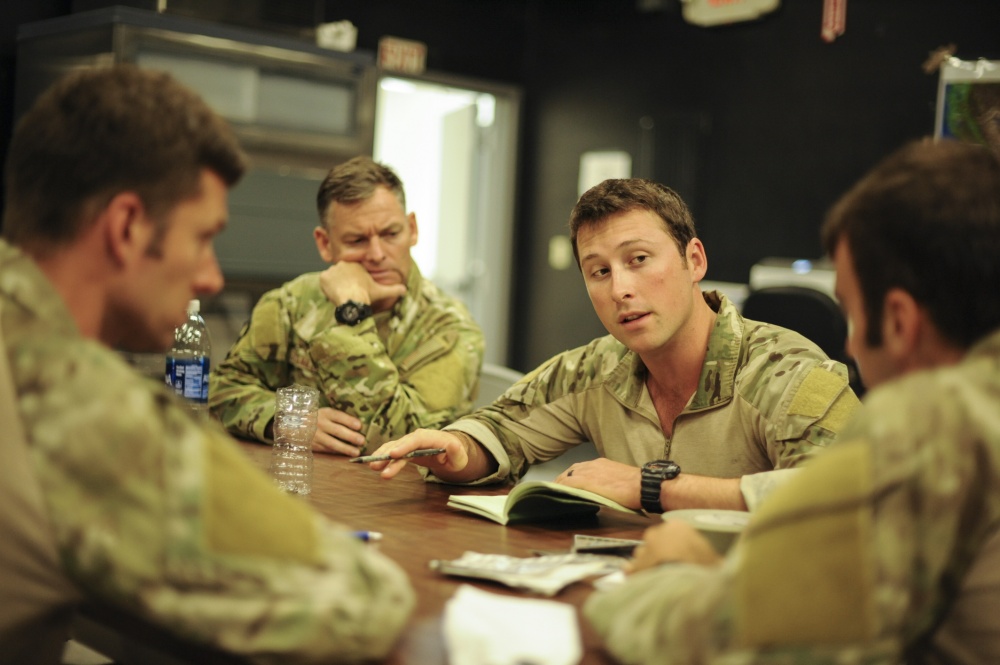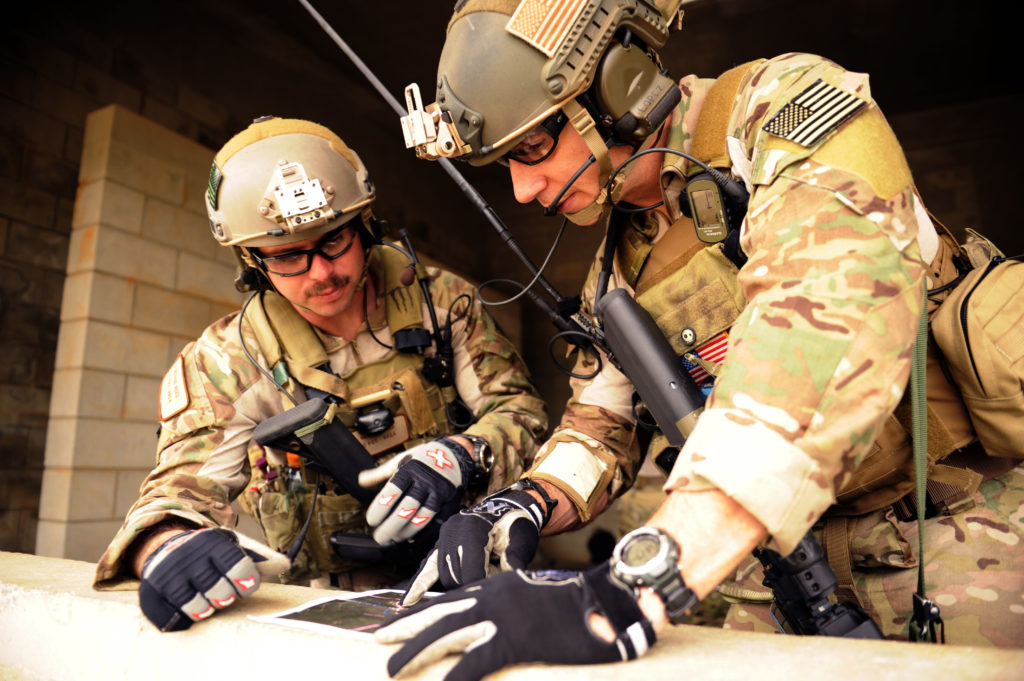Intro
For prospective recruits, the decision whether to join Special Warfare as an Air Force officer or enlisted is a common question. We’ll go over the differences so you can make the best decision.
Officer Jobs
- Combat Rescue Officer (CRO)
- Special Tactics Officer (STO)
- Tactical Air Control Party Officer (TACPO)
Pararescue – Combat Rescue Officer. Combat Control – Special Tactics Officer. TACP – TACPO. (SR is left out of this discussion- their officer advocacy comes from the Special Tactics Officers). The AFSPECWAR enlisted and officers have counterparts for one another. And while the general functions of one another overlap, there are differences that you need to be aware of, starting with joining, all the way to progression and day-to-day life and pay. Let’s get started!
Pre-Requisites
The application and initial selection process differ greatly for enlisted and officer. The most distinguishable difference is you need a 4-year degree to be an officer. And because there are fewer available officer positions than enlisted (roughly a 1:8 ratio), you can expect those few coveted officer slots to be highly competitive.
Enlisted Requirements
- A high school degree or GED
- Minimum ASVAB Score of 49 in General section
- Pass the Physical Abilities and Stamina Test
- Pass a Special Warfare Medical Physical
Officer Requirements
- Any 4-year degree
- Air Force Academy cadets may apply in the 2nd or 3rd year of college
- Civilian college seniors may apply within 12 mo of graduation
- Possess a minimum GPA of 2.5
- Attain a minimum score of 15 on the verbal and 10 on the quantitative sections of the AFOQT
- Pass a Special Warfare Medical Physical
- Pass a PT test in accordance with the Phase I instructions
- Be selected from Phase II selection
More details on pre-requisites is located on our How to Join page.
Pipeline Training Differences
Pararescue vs Combat Rescue Officer: PJs receive extensive medical training while CROs receive command and control, overarching personnel recovery doctrine and advanced SERE academics.
Combat Control vs Special Tactics Officer: CCT attends Air Traffic Control School while STO attends Airfield Operations Officer School.
Tactical Air Control Party vs TACP Officer: TACP attends the Tactical Air Control Party Craftsman Course while TACPO attend the Basic Air Liaison Officer (ALO) Course.

The enlisted career fields attend courses that perfect their technical skillset; training that is considered ‘down-and-in’ on the objective. Their officer counterparts receive a more broader curriculum and are not necessarily considered the technical expert at doing the job. Rather, the O’s are taught ‘up-and-out’ leadership abilities at the tactical level, which grows as they progress up in rank.
Day-to-Day Ops
Enlisted jobs continue the theme from the pipeline and continue refining their technical skillsets. Upgrades along the way include Jumpmaster, JTAC certification, Dive Supervisor & Team Leader. For the first 4-6 years as a young operator, the expectation is that you are in learning mode and doing mode. As the enlisted skills increase over time, the blurring of the lines between the enlisted and a younger officer counterpart are more evident. Seasoned enlisted guys work closely with their younger officer counterparts on duties that often overlap, to include: creating training plans, organizing deployment rosters, team leading on exercises and deployments. As time moves on, enlisted members are placed in more leadership positions which may limit their ‘operator time’, to include positions such as Operations Superintendent and Headquarters Staff positions. An enlisted operator can expect to regularly operate around 13 years, +/- 4 years.

Officer jobs also build off of their pipeline curriculum as they reach an operational unit. Officers are quickly placed in leadership positions at the team level, alongside enlisted troop leaders. Here, they are learning the job and leading the team for a couple years before assuming more responsibilities. While moving up the ladder, officer ‘operator time’ begins to diminish with added duties. Lieutenants and Captains will see plenty of operations time, while desk operations start to take more of a role as a Major and beyond. An officer operator can expect to regularly operate around 8 years, +/- 4 years.
Special Warfare Pay
Enlisted members obviously get paid less than their officer counterparts. While enlisted operators receive a Special Duty Pay, it is dwarfed by other types of pay that an officer receives (basic pay, housing pay, etc).

Enlisted Pay Examples (not including housing allowances or periodic bonuses)
An E-3 operator with 3 years time in service
$3000-$3400 / month
An E-6 operator with 12 years time in service
$5300-$6000 / month
Officer Pay Examples (not incl housing allowances, overseas allowances or periodic bonuses)
An O-2 operator with 3 years time in service
$5300-$5800 / month
An O-4 operator with 12 years time in service
$8200-$8800 / month
The examples above show that Special Warfare officers make $2-3000 more per month than their enlisted counterparts. With more pay comes more responsibility, and expectations for the officer operators.
In fact, a mid-level O-4 Major with 12 years time in service makes more base pay ($7832) than the highest enlisted rank Chief Master Sergeant with the maximum allowed time of 30 years in service ($7706). The base pay matters when its time to retire, as it is the only type of pay used as a reference to compute the retirement pension.
For more about Special Warfare pay, check out our in-depth article: How much pay does an AFSPECWAR operator make a month?
Ending Remarks
Special Warfare enlisted operators get more ‘operating time’, but get paid less compared to officers. The officers are placed in leadership opportunities early, and as they progress will have more influence in strategic AFSPECWAR decisions.
There are many operators that have the best of both worlds. They start on the enlisted side and fulfill an abundance of ‘operating’ and feel the calling to affect larger changes to the community. Of course, the increase in pay doesn’t hurt either.
In the end, the choice of what to pursue is yours. If you have additional questions, head over to the AFSPECWAR Community Forums and ask future, present and past operators.
